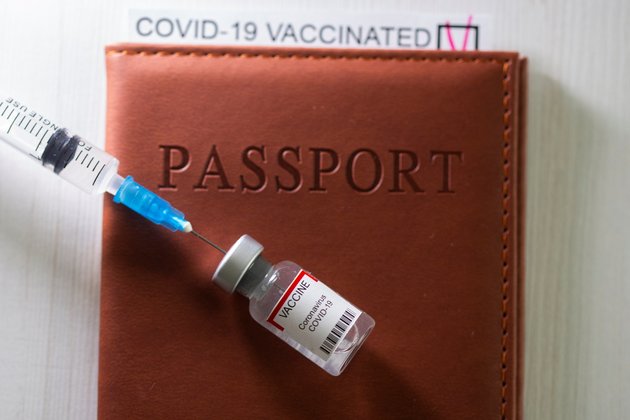he European Union – despite the World Health Organization (WHO) strongly discouraging them – has approved the EU Digital COVID Certificate for use across the bloc beginning July 1, just in time to usher in a return to summer tourism and nonessential travel across the bloc, Daily Sabah reports.
So how does it work?
Often colloquially referred to during planning as a "vaccine passport" – then as a green pass and now a certificate – the digital pass is designed to be recognized and readable by authorities across the EU. It will demonstrate whether a bearer has been vaccinated against COVID-19, has been recently tested or has acquired immunity from previously contracting the disease and recovering. Member states have not agreed on a common standard on when a PCR or lateral flow COVID-19 test must have been performed to remain valid – the rule varies between 24 and 72 hours ahead of arrival. To prove acquired immunity, a PCR test from the time of the infection can be produced, but the protection is only considered to last for 180 days – and member states may individually decide on a shorter period. Antibody testing is not yet judged sufficiently reliable to demonstrate acquired immunity, but this will be reviewed within four months of the regulation going into effect.
Are all vaccines accepted?
EU members will be asked to allow entry to travelers who have received the required doses of one of the four vaccines that have been approved by the European Medicines Agency: Pfizer-BioNTech, Moderna, AstraZeneca and Johnson & Johnson. Member states can also choose, but are not required, to approve entry for those who received jabs from a vaccine approved in some member states, such as Russia's Sputnik V, which is used by EU member Hungary. They can also choose to recognize other vaccines approved by WHO, such as China's Sinopharm.
Certificate uses QR codes
If asked to produce a certificate, travelers can present authorities with a QR code similar to what China uses, on the screen of a smartphone or tablet, for example, or printed on paper. The design contains a unique digital signature that connects a reader to the traveler's COVID-19 data. Member states will decide individually whether the data is connected to their own national track-and-trace program, or whether to maintain a separate app.
Is it private?
The text adopted by the EU provides that the certificate only contains data "strictly necessary" to oversee safe travel and that the app respects the bloc's General Data Protection Regulation (GDPR) laws. The data is not transmitted between countries, only the key that allows the certificate's authenticity needs to be transferred. Data is not retained by the countries of arrival or transit once verified.
Quarantine is still possible?
In principle, travelers with a certificate will no longer have to remain in quarantine once they arrive in another EU member state, but exceptions are possible. If the epidemic situation in the country or region of departure worsens rapidly or if a dangerous or untested new variant of the virus emerges, measures can be applied. If a member state wishes to impose such emergency controls, they must inform their partners 48 hours in advance and travelers can consult the Re-open EU website to track rule changes.
Uses beyond travel
The EU law concerns European free-movement rules, but individual member states can decide whether they want to use the certificate to control access to other events or places of gathering under the terms of national laws.
Are children exempt?
Vaccination will not be rolled out for children and adolescents in most EU members in time for summer holiday travel, and they may have to undergo testing prior to traveling even if their parents have the certificate.
30 countries included
The certificate system will apply to the 27 member states of the EU plus their neighbors Iceland, Norway and Liechtenstein. So far, successful tests of the EU data portal have been carried out in 18 of these countries. The EU legislation governing the certificate comes into force on July 1 and initially lasts for 12 months. But there will be a six-week transition period for countries that are not yet ready to implement the certificate under the EU model. During this period, other EU members should accept their national vaccine records if they include the same data.
What about the rest of the world?
Several EU member states are keen to start receiving visitors from countries like Turkey, Britain, Switzerland and the United States that are outside the scope of the EU certificate but may or may not use their own systems. Talks are underway with the WHO and air transport associations on how to make systems of certification mutually recognized and interoperable.
















